Pineapple (aka Pineapple OG)
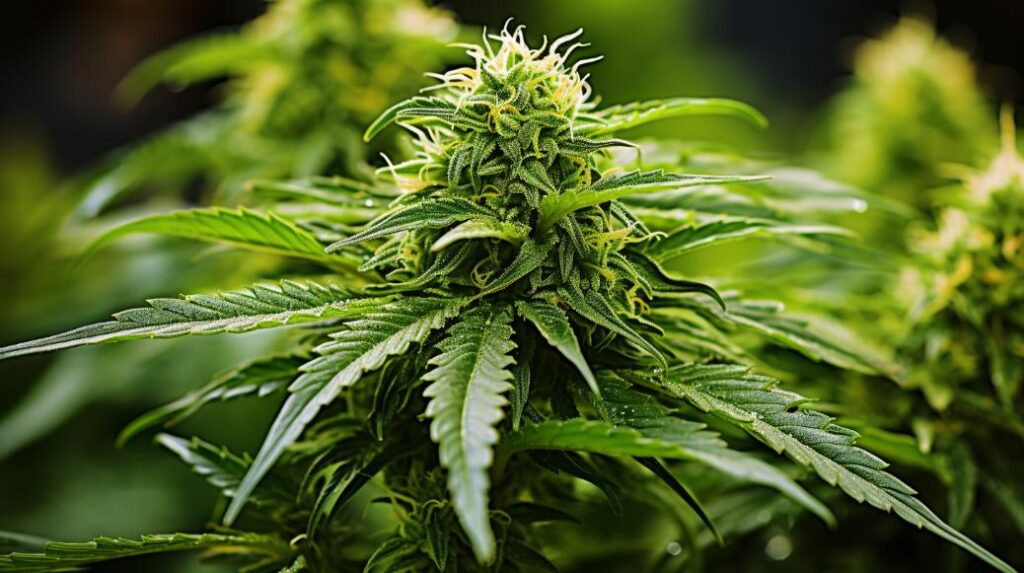
The Pineapple Strain, a well-balanced hybrid cannabis variety, emerges as a topic of considerable interest within both the medical and recreational cannabis communities. Developed through the crossbreeding of Ed Rosenthal’s Super Bud with an unidentified strain by Sensi Seeds, this strain distinguishes itself with its unique flavor profile and a THC concentration that varies significantly, ranging from 16% to 26%.
Characterized by its dark green nuggets laced with trichomes and vibrant orange hairs, Pineapple Strain offers a complex terpene profile that results in its signature sweet pineapple and tropical aroma, combined with subtle skunk undertones. The effects reported by consumers—ranging from cerebral bliss and heightened sociability to a gentle, relaxing body sensation—underscore its potential therapeutic benefits, particularly in the management of depression and anxiety.
Moreover, its resilience against common cultivation challenges such as mold and mildew, coupled with a flexible growing cycle, makes it an appealing option for cultivators. However, the intriguing aspects of Pineapple Strain do not end with its sensory profile and effects. As we explore its genetic lineage, terpene composition, and compare it with similar strains, a more nuanced understanding of its place in the cannabis spectrum begins to unfold, suggesting avenues for further investigation and discussion.
Genetic Lineage
The Pineapple strain, a renowned member of the cannabis family, boasts a complex genetic lineage that traces back to a cross between the illustrious Ed Rosenthal Super Bud and a select phenotype of Pineapple. This unique hybridization has resulted in a strain celebrated for its distinctive aroma, flavor profile, and potent effects. The meticulous selection and breeding process underscore the strain’s hybrid nature, balancing the sativa and indica genetics inherited from its parent strains.
Analyzing the genetic lineage of the Pineapple strain reveals a strategic blend of traits aimed at enhancing its sensory and psychoactive attributes. The Ed Rosenthal Super Bud contributes to its robust growth characteristics and diverse terpene profile, while the Pineapple phenotype lends its tropical flavors and uplifting effects. This genetic synthesis has positioned the Pineapple strain as a standout among hybrids, offering a nuanced experience that appeals to both connoisseurs and casual users alike.
Strains with similar effects often lack the intricate genetic foundation that defines the Pineapple strain. Its lineage is a testament to the art and science of cannabis breeding, highlighting the potential to create nuanced and multifaceted hybrids that cater to a wide range of preferences and needs within the cannabis community.
THC/CBD Content
Building on its complex genetic foundation, the Pineapple strain exhibits a THC/CBD content profile that underscores its potent psychoactive potential and minimalistic approach to CBD. As a hybrid marijuana strain, Pineapple has carved out a niche for itself within the cannabis community, attracting users with its high THC levels and low CBD content. This combination makes it particularly appealing for those seeking the pronounced effects commonly associated with THC-rich strains, while the minimal CBD content reflects a trend among certain cannabis strains to focus on delivering a potent psychoactive experience.
-
THC levels in the Pineapple strain range from 16% to 26%, with an average THC content hovering around 19%. This places Pineapple in the category of higher THC potency strains when compared to the average.
-
CBD levels are consistently low, typically less than 1%, emphasizing the strain’s focus on delivering a strong THC-driven experience.
-
As a result, Pineapple is predominantly THC-rich, appealing to users seeking the euphoric and intense psychoactive effects associated with high-THC cannabis strains.
In essence, the THC/CBD content of Pineapple reflects its status as a choice hybrid marijuana strain for those prioritizing potency and psychoactive intensity over CBD-related benefits.
Terpene Profile
Diving into the Pineapple strain’s aromatic essence, its terpene profile—comprising caryophyllene, limonene, and ocimene—plays a pivotal role in defining its distinctive citrus and pineapple flavors. These terpenes not only enrich the sensory experience but also hint at the strain’s potential therapeutic benefits. Caryophyllene, for instance, may offer anti-inflammatory and analgesic properties, contributing to pain relief. Limonene, recognized for its stress-relieving qualities, could enhance mood and mitigate anxiety. Lastly, ocimene, with its antifungal and antiviral attributes, suggests additional health-supporting potentials.
Understanding this terpene synergy is crucial for consumers seeking specific effects or medicinal benefits, as it guides the selection of strains with similar terpenes and, consequently, effects. For example, Pineapple Express, another sativa-dominant hybrid, shares a similar terpene profile, offering an energetic and uplifting experience.
| Terpene | Potential Benefits |
|---|---|
| Caryophyllene | Anti-inflammatory, Analgesic |
| Limonene | Stress Relief, Mood Enhancer |
| Ocimene | Antifungal, Antiviral |
This detailed exploration of the Pineapple strain’s terpene profile not only illuminates its sensory appeal but also underscores its place among strains selected for both pleasure and wellness purposes.
Effects
After exploring the Pineapple strain’s aromatic and therapeutic terpene profile, it becomes essential to examine its effects on users, which range from psychological upliftment to potential physical discomforts. Known for its lower THC potency, the Pineapple strain stands out as a choice for those seeking a milder experience but still desiring the profound benefits of cannabis.
The effects of this strain are predominantly characterized by:
-
A pronounced feeling of happiness and upliftment, catering to individuals battling stress, anxiety, and depression. It engenders a sense of well-being and energy, making it particularly suitable for morning or daytime use.
-
An invigorating Body High that doesn’t overpower, allowing for functionality and creativity. Users report feeling good without the lethargy often associated with higher THC strains.
-
Potential side effects, including dry mouth, dry eyes, and occasional headaches. These are common among cannabis strains but are worth noting for those new to the Pineapple strain or cannabis in general.
Medical Uses
The Pineapple strain’s versatility extends beyond its uplifting effects, proving to be a valuable ally in the medical cannabis community for its significant potential in alleviating various symptoms and conditions. Its complex profile suggests a broad spectrum of medical applications, underscored by anecdotal evidence and user experiences. However, it’s important for individuals to seek guidance from a health professional before using Pineapple strain for medical purposes, to ensure it aligns with their health needs and to avoid any adverse effects.
| Symptom/Condition | Reported Benefit |
|---|---|
| Stress | Alleviation of mental stress |
| Anxiety and Depression | Reduction in feelings of anxiety and improvement in mood |
| Chronic Pain and Cramps | Pain relief, including muscle spasms |
| Nausea | Mitigation of nausea, helpful in chemotherapy-induced nausea |
| Appetite Stimulation | Encourages eating in disorders or conditions causing weight loss |
The above table encapsulates the primary medical uses reported by users of the Pineapple strain. These benefits highlight the strain’s potential in addressing not just physical discomfort but also psychological distress. Nonetheless, it is crucial to consider this information as a supplement to, not a substitute for, professional medical advice.
Flavor and Aroma
Transitioning to the sensory profile, Pineapple strain’s flavor and aroma are characterized by an intricate fusion of sweet pineapple and tropical undertones, complemented by the subtle sharpness of Skunk. This distinct combination captivates real people with its vibrant sensory appeal, drawing them into an experience that is as aromatic as it is flavorful. The dark green buds of Pineapple are a visual hint at the rich, complex profile waiting to be discovered upon consumption.
To paint a picture for the audience:
-
The flavor profile is a harmonious blend of bright citrus notes and earthy pine, infused with the sweetness of ripe pineapple, creating a dessert-like experience that tantalizes the taste buds.
-
Aromatic experiences are heightened by the presence of terpenes such as caryophyllene, limonene, and ocimene, which contribute to Pineapple’s unique smell, combining the pungency of Skunk with the refreshing scents of tropical fruits.
-
Upon consumption, the strain offers a balancing act between sweet and savory notes, providing a complex flavor that ensures a cerebral bliss and happiness, appealing to those seeking an uplifting and flavorful cannabis experience.
Appearance
Building on the sensory allure of its flavor and aroma, Pineapple strain’s appearance further captivates with its dark green nuggets adorned with trichomes and vibrant orange hairs. The visual appeal of this strain is undeniably striking, drawing users and cultivators alike into its tropical embrace. Originating from the renowned Ed Rosenthal’s Super Bud, the Pineapple strain boasts an appearance that is as complex and delightful as its lineage suggests.
The buds are lush, bodacious, and present irregular, oblong shapes that make them visually distinct and appealing. Their resinous coating, indicative of the strain’s generous THC content, gleams under light, highlighting the craftsmanship behind its cultivation. This resinous appearance not only signifies potency but also enhances the strain’s overall aesthetic, making it a favorite among connoisseurs for both its visual and psychoactive qualities.
| Feature | Description | Impact |
|---|---|---|
| Coloration | Dark green with vibrant orange hairs | Enhances visual appeal |
| Shape | Irregular, oblong | Unique visual identity |
| Trichomes | Abundantly coated | Indicates high THC content |
| Aroma | Skunky with tropical notes | Complements visual aesthetics |
| Lineage | Ed Rosenthal’s Super Bud | Quality and complexity |
In essence, the appearance of the Pineapple strain is a testament to the art and science of cannabis cultivation, embodying a perfect blend of visual allure and potent genetics.
Grow Information
Delving into the cultivation specifics, Pineapple strain requires a nuanced approach to maximize its growth potential and preserve its unique characteristics. This tropical-themed cannabis variety, celebrated for its sweet, fruity aroma and potent effects, demands attention to detail in its grow information. Cultivators, from novices to experts, can achieve bountiful yields with proper care, ensuring that the essential qualities of the pineapple strain are not only preserved but also enhanced.
To successfully cultivate this strain, consider the following key points:
-
Climate Control: Pineapple strain thrives in a warm and controlled environment. Maintaining a consistent temperature that mimics tropical climates is crucial.
-
Nutrient Management: Balanced feeding schedules that STOCK PRODUCTS NEAR optimal levels are vital. Over or under-feeding can drastically affect the plant’s health and potency.
-
Lighting Conditions: Adequate lighting is essential for maximizing growth and ensuring the development of the strain’s signature flavors and aromas.
These grow information guidelines serve as a foundational framework for cultivating the pineapple strain. By adhering to these principles, growers can not only optimize their yield but also ensure the production of high-quality cannabis that stays true to the strain’s renowned characteristics.
Adverse Effects
Exploring the adverse effects of the Pineapple strain reveals a spectrum of potential reactions, ranging from mild discomforts such as cottonmouth and watery eyes to more serious concerns like paranoia and anxiety in susceptible individuals. This cannabis strain, though generally recognized for its energizing and mood-lifting properties, carries the possibility of inducing less desirable effects, particularly in those using cannabis for a medical condition or those who are more sensitive to THC’s impact.
| Common Adverse Effects | Less Common Adverse Effects |
|---|---|
| Cottonmouth | Dizziness |
| Watery Eyes | Headaches |
| Dry Mouth | Spacey Sensation |
| Strong Boost of Happiness | |
| Paranoia |
For individuals prone to anxiety or those experiencing adverse effects, it is crucial to seek the advice of a healthcare professional before consuming the Pineapple strain or any cannabis product. Understanding one’s tolerance and reaction to specific strains can significantly mitigate the risk of experiencing these adverse effects. Hence, a cautious approach is advised, especially for newcomers to cannabis or those exploring Pineapple strain for its potential benefits.
Comparisons with Similar Strains
After examining the adverse effects of the Pineapple strain, it is pertinent to evaluate how it compares to other strains in terms of energizing effects, THC potency, flavor profile, therapeutic benefits, and cultivation characteristics.
The Pineapple strain is lauded for its ability to invigorate users, a trait shared with other energizing strains, yet it is distinguished by its lower THC potency, making it an ideal choice for those seeking a more evenly balanced experience. Its unique sweet pineapple and tropical flavor profile set it apart from other strains, yet it also aligns it with strains known for their fruity undertones.
Key comparisons include:
-
Energizing Effects: Similar strains provide energy and focus, yet Pineapple stands out for its balanced energizing qualities without overwhelming potency.
-
Therapeutic Benefits: Its benefits in relieving anxiety, stress, and depression find strains with similar mood-boosting properties, making comparisons with similar strains invaluable for medicinal users.
-
Cultivation Characteristics: Pineapple’s resilience and adaptability in various growing conditions echo those of other robust strains, appealing to cultivators looking for reliable yields.
Research and Studies
In the realm of cannabis research, studies focused on the Pineapple strain have highlighted its unique blend of therapeutic effects, cultivation ease, and chemical composition. Esteemed researchers have used science to find that this strain stands out due to its high levels of certain cannabinoids and terpenes, which are believed to contribute to its distinctive effects. Among cannabis strains, we used science to systematically analyze and compare the Pineapple strain, revealing its potential benefits for both medical and recreational users.
People say it helps with a variety of conditions, including stress, anxiety, and pain, and these anecdotal claims are beginning to be backed by scientific inquiry. The Pineapple strain’s rich terpene profile, particularly its high myrcene content, has been associated with its sedative and relaxing properties. Additionally, its cultivation characteristics, such as resistance to pests and mold, have made it a subject of interest in agricultural studies aimed at improving cannabis cultivation practices.
Research into the Pineapple strain employs a multifaceted approach, combining chemical analysis with clinical trials to understand its full potential. As science continues to unravel the complexities of cannabis and its myriad strains, the Pineapple strain remains a compelling subject for its unique properties and potential applications.
History and Origin
Building on the foundation of scientific research and studies, the history and origin of the Pineapple strain offer a fascinating glimpse into its development and the genetic lineage that contributes to its distinctive characteristics.
Originating in California, the Pineapple strain is a product of meticulous inbreeding from Ed Rosenthal’s Super Bud. The science to find strains that not only deliver on potency but also offer a unique sensory experience has led to the development of Pineapple, characterized by its balanced hybrid nature and exceptional flavor profile.
Key aspects of the Pineapple strain’s history and origin include:
-
The genetics of Pineapple hail from a Pakistani Landrace, enriching it with a unique blend of characteristics that balance the effects of Sativa and Indica.
-
With a 50% Sativa and 50% Indica composition, Pineapple boasts THC levels ranging from 16% to 26%, and minimal CBD content, underlining its potent effects coupled with a rich, tropical aroma.
-
Sensi Seeds played a pivotal role in its development, focusing on traits such as the strain’s distinctive sweet pineapple and tropical notes, alongside its mellow body sensation and robust resistance to mold and mildew, making Pineapple a standout choice among cannabis connoisseurs.
Frequently Asked Questions
Is Pineapple a Sativa or Indica?
The Pineapple strain, known for its distinctive effects and hybrid lineage, leans towards the Sativa side. It combines energetic and uplifting experiences, benefiting from cultivation tips tailored to its unique genetic composition.
Is Pineapple OG Strain Indica or Sativa?
The Pineapple OG strain, with its complex flavor profile blending sweet and earthy notes, leans towards sativa. Its effects stimulate creativity and energy, benefiting from cultivation tips that emphasize light and temperature control for optimal growth.
Is Pineapple Punch Sativa or Indica?
Pineapple Punch, known for its distinct pineapple flavor profile, typically thrives in specific growing conditions that enhance its therapeutic benefits. This strain leans towards Sativa, offering users a more energizing and uplifting experience.
Is Pineapple Chunks Indica or Sativa?
Pineapple Chunks, often sought for its distinct flavor profile, thrives in specific growing conditions and is recognized for its medicinal benefits. Its classification as either Indica or Sativa influences these characteristics significantly.

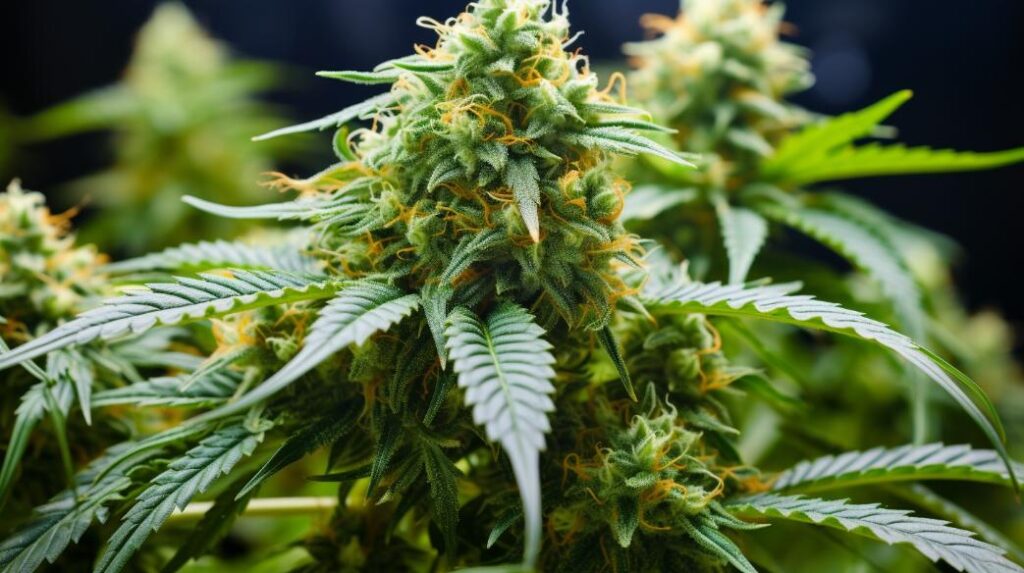
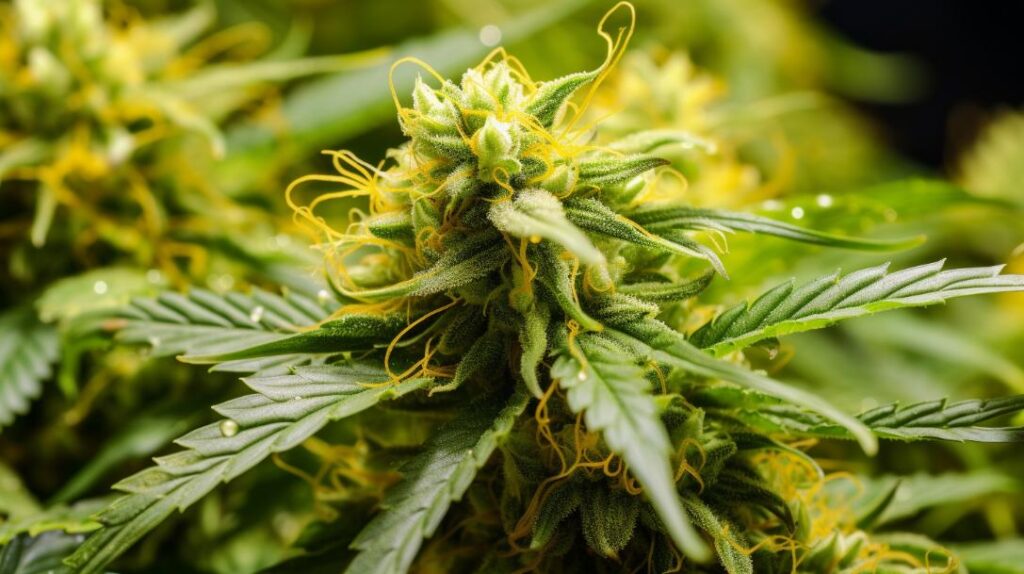
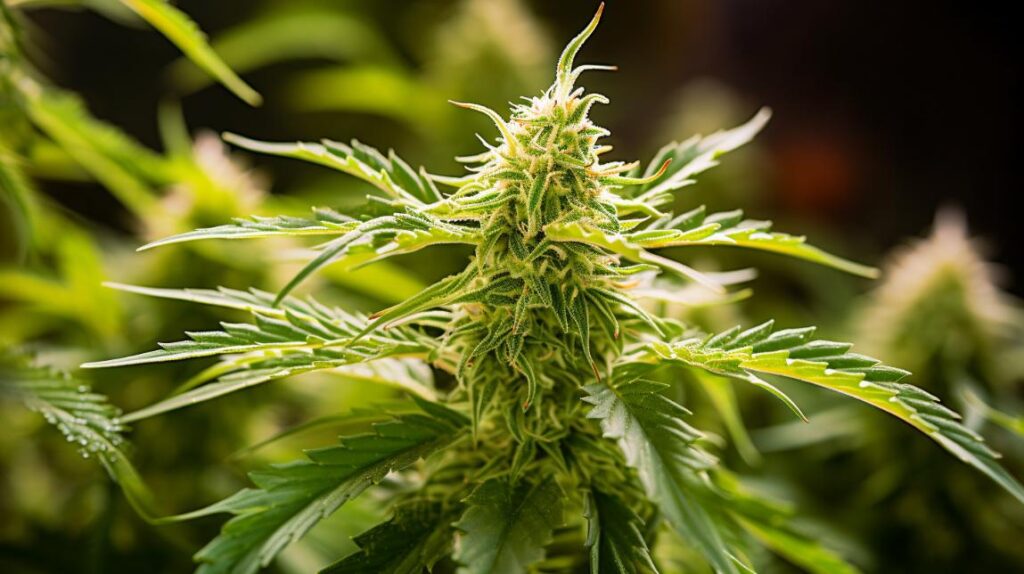
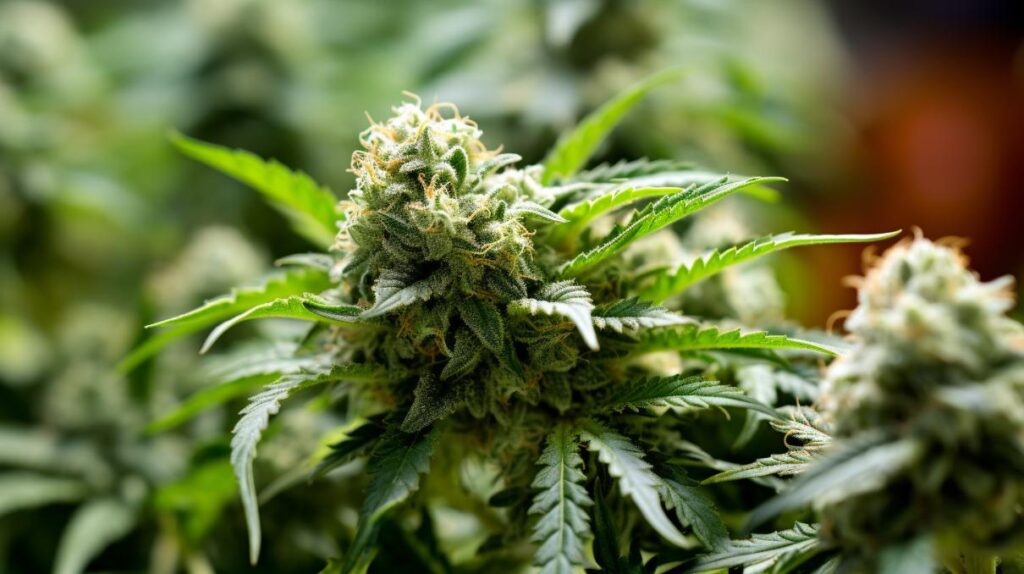
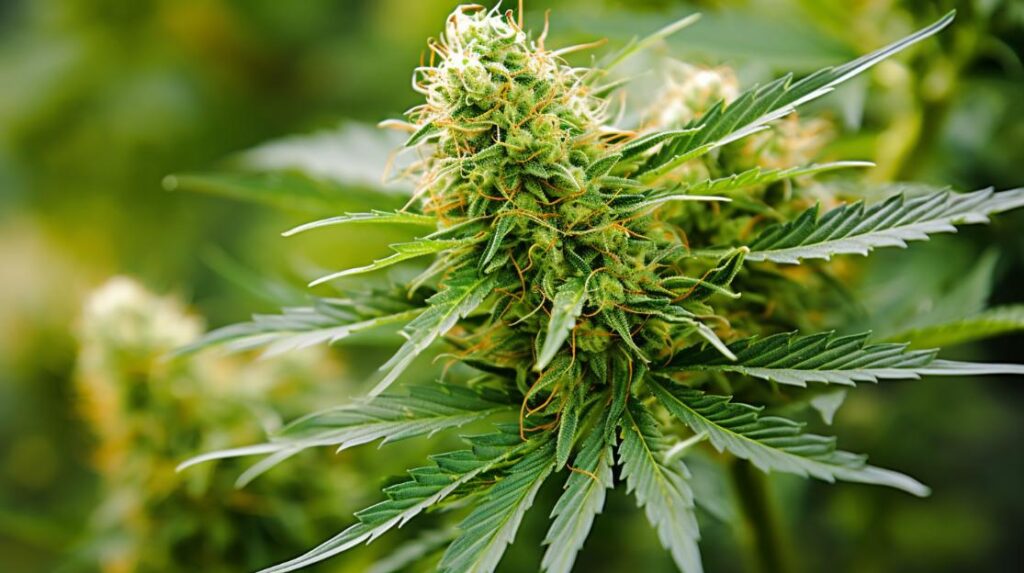

Responses